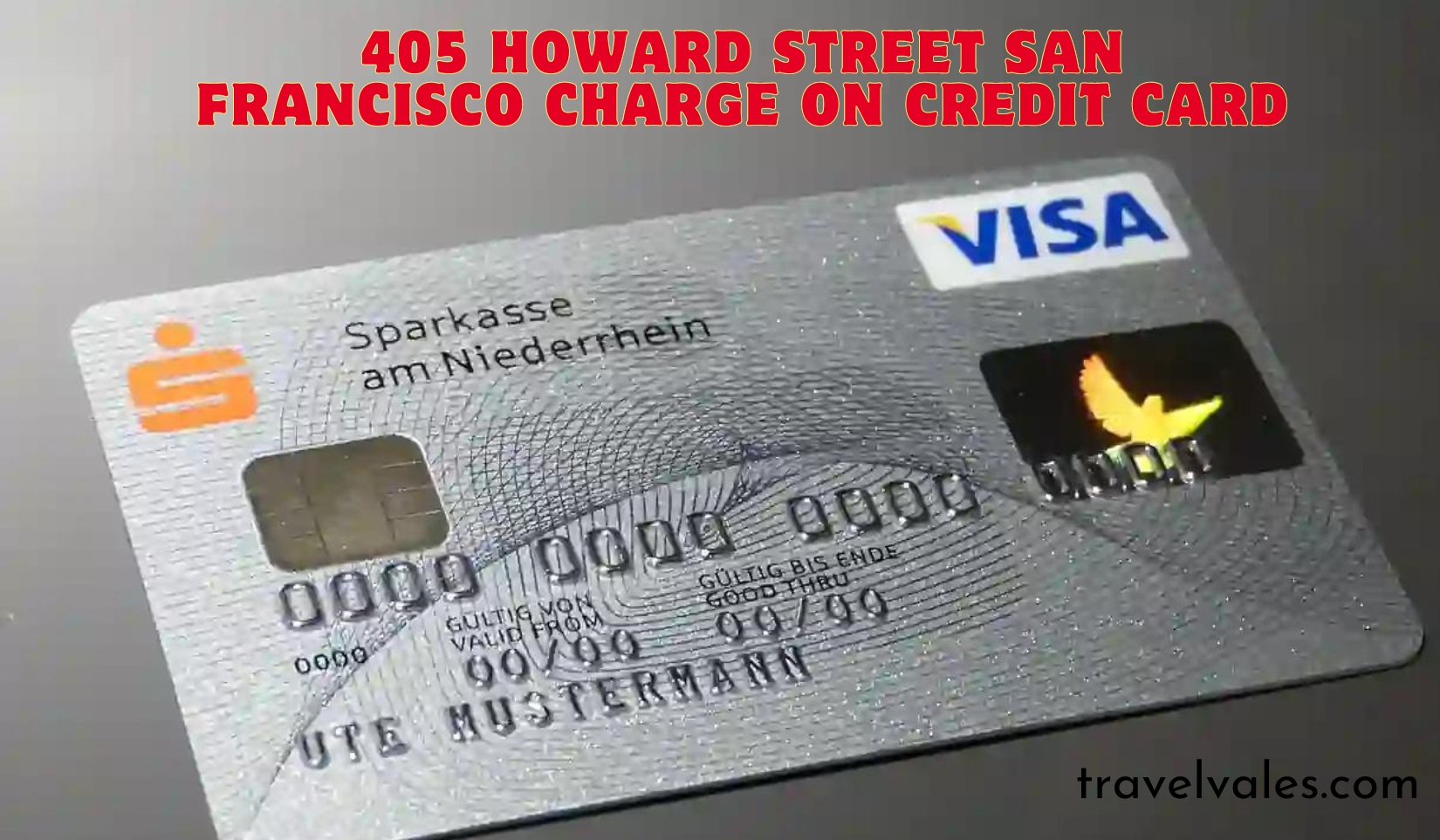Introduction 405 Howard Street San Francisco Charge On Credit Card
Picture this: you’re going through your monthly credit card statement when suddenly, you spot a charge from 405 Howard Street, San Francisco, a place you’ve never visited. Alarm bells start ringing in your mind as you realize this could be a sign of fraudulent activity. What should you do? Acting swiftly is paramount in such situations. In this guide, we’ll delve into the importance of disputing unfamiliar charges, the potential risks they pose, and a comprehensive roadmap for resolving them.
Why Dispute Unfamiliar Charges?
The emergence of unfamiliar charges on your credit card statement isn’t just an inconvenience; it could signify a more sinister issue—fraudulent activity. Identity theft, one of the potential dangers of such charges, can wreak havoc on your financial well-being and personal security. From unauthorized purchases to compromised personal information, the repercussions can be far-reaching. It’s crucial to assert your right to dispute charges you don’t recognize. By doing so, you not only protect yourself from financial loss but also contribute to thwarting criminal activities.
7 Unique Ways to Dispute the 405 Howard Street Charge
- Contact Your Credit Card Issuer Immediately: As soon as you detect an unfamiliar charge, don’t hesitate—reach out to your credit card issuer’s customer service department. Whether through a phone call or online chat, report the charge verbally and promptly follow up with a written dispute. Providing a detailed account of the discrepancy strengthens your case and expedites the resolution process.
- Gather Evidence to Support Your Claim: Documentation is key in disputing charges effectively. Collect pertinent details such as the date, amount, and description of the charge. Additionally, gather receipts or evidence of non-use for the purported service or product. Concrete evidence bolsters your argument and increases the likelihood of a favorable outcome.
- Freeze Your Credit Card (Optional): To prevent further unauthorized charges while the dispute is underway, consider freezing your credit card. This temporary measure offers peace of mind and minimizes the risk of additional financial harm.
- File a Police Report (if applicable): If you suspect identity theft or criminal activity, involving law enforcement is imperative. Filing a police report not only documents the incident but also sets in motion legal processes to apprehend perpetrators and safeguard others from similar threats.
- Monitor Your Credit Report: Stay vigilant by regularly monitoring your credit report for any signs of suspicious activity. Obtain a free credit report and scrutinize it for unauthorized inquiries or accounts. Timely detection allows for swift intervention and mitigation of potential damages.
- Consider Additional Security Measures: Enhance your credit card security by implementing additional measures such as robust passwords and transaction alerts. Strengthening your defenses reduces the likelihood of future breaches and fortifies your financial resilience.
- Be Persistent: In the event of an initial dispute denial, don’t lose heart—persistence pays off. Follow up with your credit card issuer, reiterating the merits of your case and providing any additional evidence or information requested. Tenacity is often rewarded with a favorable resolution.
Bonus Section: How to Resolve a Charge from 702 SW 8th St
Acknowledging another unfamiliar charge, this time from 702 SW 8th St, underscores the prevalence of fraudulent activities. Employ the same dispute process outlined for the 405 Howard Street charge to address this discrepancy effectively. Consistency in approach ensures thoroughness and increases the likelihood of a successful outcome.
YOU MAY ALSO LIKE
The Sacred Art of Sampo-Yoshi: How It Propels Companies to Prosperity
Conclusion
In a world rife with financial threats, safeguarding your finances is paramount. Disputing unfamiliar credit card charges is not merely a reactive measure; it’s a proactive stance against fraud and identity theft. By acting swiftly and methodically, you protect your financial well-being and uphold your rights as a consumer. Remember, vigilance is your greatest asset in the fight against fraudulent activities. For additional information and guidance, refer to resources provided by credit card issuers and regulatory bodies such as the Federal Trade Commission. Stay informed, stay vigilant, and safeguard your financial future.
FAQS
- How do I dispute a credit card charge?
- Contact your credit card issuer immediately and gather evidence to support your claim.
- What should I do if I find unfamiliar charges on my credit card?
- Act swiftly, report the charges, freeze your card if needed, and monitor your credit report.
- Can I freeze my credit card to prevent unauthorized charges?
- Yes, freezing your card is optional but advisable to prevent further financial harm.
- Should I file a police report for suspicious charges?
- Yes, especially if you suspect identity theft or criminal activity.
- What happens if my dispute is denied?
- Be persistent and follow up with your credit card issuer with additional evidence.










